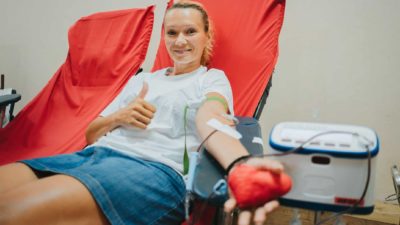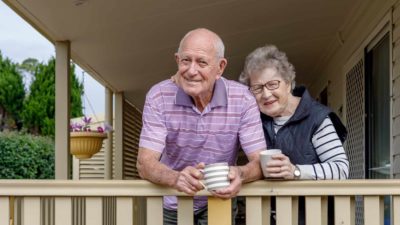Imugene Ltd (ASX: IMU) shares are starting the week with a bang.
In morning trade, the ASX All Ords stock is up 30% to 8.1 cents.
Why is this ASX All Ords stock rocketing?
Investors have been fighting to get hold of the clinical stage immuno-oncology company's shares after it announced promising results from a trial.
This trial is the phase 1b clinical trial with azer-cel (an allogeneic off-the-shelf CD19 CAR T) in patients with relapsed/refractory diffuse large B cell lymphoma (DLBCL). It is a type of non-Hodgkin's lymphoma (NHL). All enrolled patients had cancer that had returned following autologous CAR T therapy.
According to the release, 10 patients have been treated to date with Imugene's azer-cel in the Phase 1b DLBCL trial.
Cohort A saw 6 patients treated with azer-cel and lymphodepletion (chemotherapy), whereas cohort B saw 4 patients treated with azer-cel, lymphodepletion, and interleukin 2 (IL-2).
The ASX All Ords stock revealed that there were three complete responses. The first two patients treated in Cohort B achieved a complete response and one patient treated in Cohort A achieved a complete response.
'Delighted'
Imugene's chief medical officer, Paul Woodard, MD, revealed that the company was delighted with the trial results so far. He said:
We are delighted that the first 2 patients in the Cohort B in our azer-cel Phase 1b trial achieved a complete response and continue to maintain their complete responses, one for over 120 days and the other for over 90 days.
All four patients enrolled in Cohort B have failed 4 to 5 prior treatments, including autologous CAR T therapy. All 4 patients remain on the study and given the robust response rates and durability seen to date, we will continue to enrol patients in the azer-cel plus IL-2 cohort and will closely follow all patients for further responses and durability.
This sentiment was echoed by the ASX All Ords stock's managing director and CEO, Leslie Chong. She said:
I am proud of our clinical development team who assessed ways to enhance azer-cel's durability of response, as one of the biggest challenges in CAR T therapy is ensuring that the modified T-cells stay in the body long enough to kill cancer cells.
To maximise the response rates and durability further, we added a very low dose of IL-2 to the regimen in Cohort B. We are pleased with the results, which suggest improved outcomes in patients, and we look forward to amassing more data using this dosing regimen. We will continue to seek biomarker evidence from Cohort B patients that suggest our strategy is improving the performance of azer-cel.









